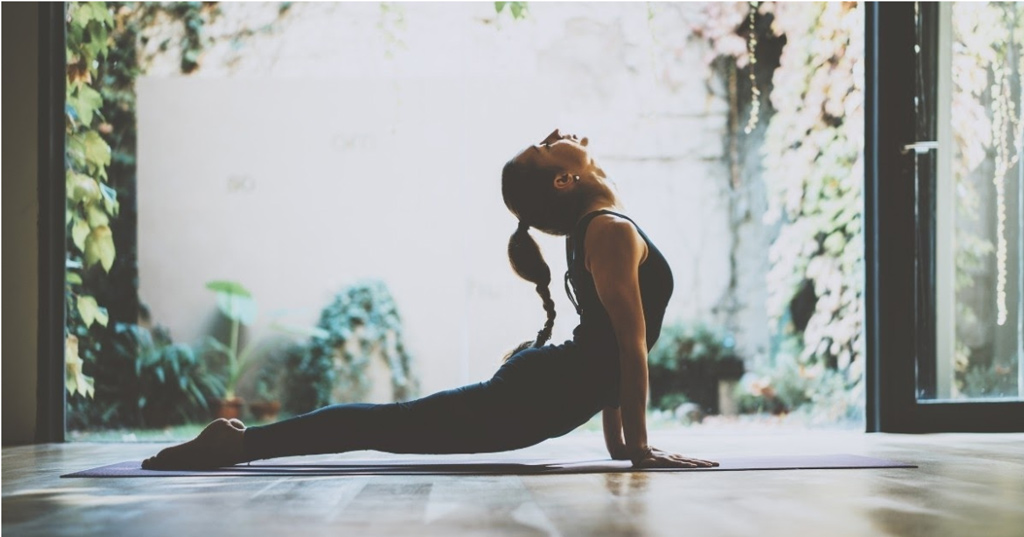The first time I passed out in the OR, I was a medical student holding skin retractors during a mastectomy. My favorite surgery attending was humming along to “Sweet Caroline” when suddenly I noticed the OR lights blazing against my face, and I felt as if my mask was trying to suffocate me. The OR lights gave way to darkness creeping in from my peripheral visual fields, and I stepped back from the table just in time to be lowered to the floor by the circulating nurse. Before long, I found myself on a stretcher in the PACU receiving juice and crackers meant for patients recovering from surgery.
Naturally, I was mortified. But as I lay there, lamenting what I thought had been a death knell to my surgical career, I had a revelation: I hadn’t been taking care of myself. As much as I wanted to blame something else, I couldn’t find another plausible reason for why I had passed out. I hadn’t been locking my knees, nor had I been grilled on information I didn’t know (ie, vasovagal syncope). However, I hadn’t been getting enough sleep, hadn’t eaten anything that day, and hadn’t had clear urine (ie, adequate intravascular volume) since the start of the surgery rotation. The cumulative effects of these deficits in self-care had made a patient out of me (oh, the irony!).
Self-care has only recently become a major conversation topic in medicine. Still, the principle behind taking care of yourself to better care for others has been around for a while. In his self-improvement classic “The 7 Habits of Highly Effective People,” Stephen Covey likens self-care to “sharpening the saw”. He says that even though it takes time to sharpen a dull saw in the midst of felling a tree, it’s more effective than continuing to work feverishly with a dull saw.
After reading my brutal introduction, you may be thinking to yourself, “Okay, I’m on board with the idea of self-care, but how am I supposed to find the time?” Or maybe you’re wondering, “Where do I begin? How can I achieve self-care with my endless responsibilities?” The good news is that there are small, practical ways you can invest in your health amidst the intensity of medical school. Let’s explore a few simple self-care practices that you can do with minimal props and, in less than 10 minutes, in four crucial areas.
1. Mental
In medical school, keeping your mind stimulated is not a concern; not becoming overstimulated and mentally overwhelmed by the sheer volume and difficulty of the requisite information is the real challenge. The fact is, there’s no working around the amount of information you have to learn, but you can improve how you respond to these stressors.
One small thing that can help is breathing exercises. Autonomic though breathing is, it is possible to learn how to breathe better, believe it or not. And once you get used to simple breathing exercises, such as deep breathing (aka belly breathing) and roll breathing, you can easily do a better job managing your stress and maintaining your mental equilibrium. For example, deep abdominal breathing, which encourages the full exchange of oxygen, can slow the heartbeat and lower or stabilize blood pressure. Start with belly breathing, which is comfortable and relaxing. Then, as you get more comfortable with breathing exercises, you can also try roll breathing, which helps you develop full use of your lungs and focus on your breathing rhythm. Here are some more tips to boost your mental health.
2. Physical
Just because we study every facet of the body in medical school doesn’t automatically make us practitioners of proper physical self-care, right? Admittedly, not practicing what we preach is one reason the adage, “Doctors make the worst patients” has stuck around. But physical self-care doesn’t have to be perfect (strict Meditteranean diet with a side of running marathons, anyone?) to have a positive effect. Here are a few simple tips for healthy eating in the fast-paced environment of medical school. Something as simple as adding a fruit or vegetable to each meal (eg, drinking a breakfast smoothie with veggies mixed in) can add up over time to better overall nutrition.
And what about exercise, the other half (whether better or worse is up to you) of physical self-care? The gym isn’t the only path to healthy fitness habits—did you know that dancing can make a big difference? According to a recent study, “A regular dose of dancing not only feels good to you but is good for you.” The research reveals that “dancing immerses us in the present moment and activates brain pathways that produce and release feel-good, trust-boosting substances.” Another research study confirms that “music and dance not only activate the sensory and motor circuits of our brain, but also the pleasure centers.” So go ahead—pull out your party moves in front of the mirror (we won’t judge!), or get your friends together for a Zoom dance party.
3. Social/Emotional
Human beings are social beings, and social activities tend to boost our emotional well-being. Even in medical school, when you’re moving at a frantic pace, it’s vital to engage in healthy social activities. Have you heard about the 20-second hug? If not, you’ll want to give it a try after learning about its health benefits. Research studies have shown that the 20-second hug releases oxytocin, which induces relaxation and lowers anxiety.
Or, during a time of social distancing when it’s harder to give hugs, you could try this oldie-but-goodie: sending handwritten letters to your friends and loved ones. It’s an old-school activity that’s making a comeback and with its fair share of health benefits. As Margaret Haas, founder of the LA Pen Pal Club, said, “Writing a letter by hand forces me to slow down, and I think more deeply about my thoughts as a result. I have worked through many issues by taking the time to share them with a pen pal. It is therapeutic that way.”
4. Spiritual
Last but not least, we cannot afford to neglect our spiritual health. Spiritual here doesn’t necessarily mean religion. It can also be any activity that helps foster your connection with the world around you and expands your sense of self-awareness (eg, spending time in nature, meditating). One simple habit that can significantly improve your spiritual well-being is practicing gratitude.
Studies have shown that practicing gratitude can change the brain, improve mental health and lead to better relationships with others. Other benefits include fewer physical symptoms of illness, more optimism, greater goal attainment, and decreased anxiety and depression, just to name a few. Perhaps most importantly, maintaining an attitude of gratitude gives you a more holistic perspective on the world and humanity as you acknowledge the role others play in bettering the world and bringing happiness into your life.
If this list of ideas still feels overwhelming, just start with one thing. Small, incremental changes add up over the long run. As James Clear, the author of the New York Times bestseller Atomic Habits, says, “Success is the product of daily habits—not once-in-a-lifetime transformations.” In simpler terms, remember that progress, no matter how incremental, is still progress. Good luck to you!




